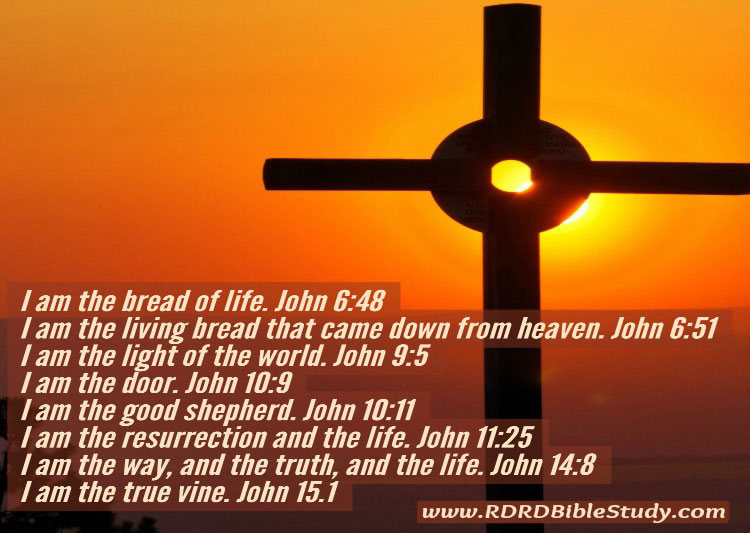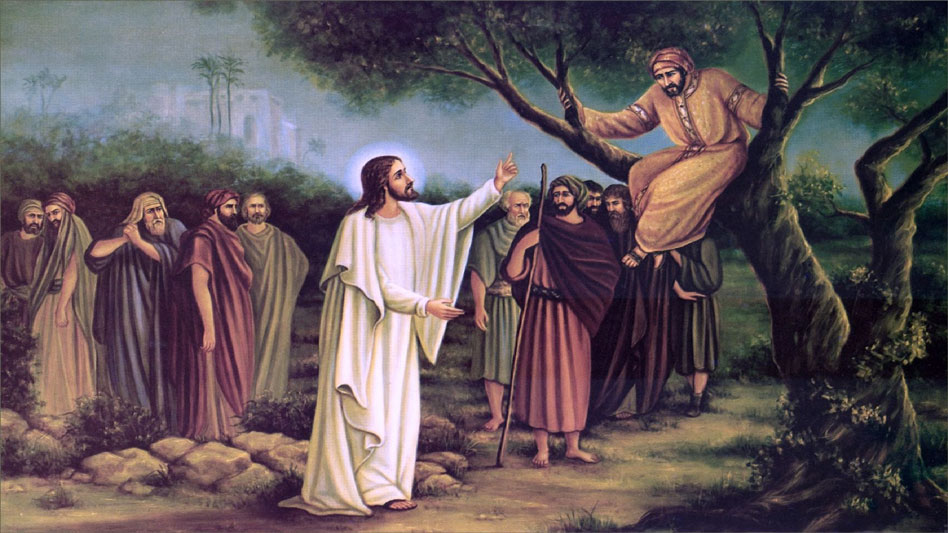Theological Context: God’s Self-Disclosure
Random (and amazing) Reader: Seriously?
Me: What?
Random (and amazing) Reader: Theological Context?
Me: Seriously. Theological Context.
Random (and sarcastic) Reader: Isn’t that like discussing if the ocean is wet?
Me: Huh?
Random (and pragmatic) Reader: You know, isn’t theological context obvious. It is the Bible, after all…
Me: Well… When is the last time you discussed hydrology at the beach?
Maybe not so obvious…
Strangely, enough, within the so-called theological disciplines there has been a neglect of the theological interpretation of Scripture (Rosner 2000).
Rosner finds this neglect “strange” because
Not to attend to theological interpretation is to stop short of interpretation, to ignore the interests of the texts themselves.
Ignore sounds so harsh, but in essence that is exactly what is happening.
Don’t Ignore Theology
By and large the greatest assassinations of theological context do not take place from grassy knolls, but are usually given quite public platforms. These shots range from a near miss to a total barrage of disregard for theological context.
Fortunately, Spirit-filled preachers, teachers, and students of the Word do due diligence of contextual study. However, as painful as it is to say this, not all “preachers” or “teachers” who purport to proclaim God’s Word are interested in God’s agenda, i.e. Spirit-filled. And contextual study is cast aside altogether or taken to extremes of sensationalism, misinterpretation, or application for a specific special interest group. Postmodernism, among other things, has made the Spirit-filled task of diligently preaching and teaching theology all the more crucial.
Countless examples of misinterpreted Scripture, and the logical trajectory, misapplied Scripture, could be mitigated, or alleviated, by simply investigating theological context.
An example of total disregard for theological context can often be heard or read in mainstream media or other atheist groups. One favorite is to quote a verse about “God’s violence in the OT.” It is usually “quoted” in an attempt to attack Christianity and/or the Bible in a way meeting the media writer’s current agenda.**
Context
Context matters. No matter what, or how, information is disseminated “context matters.” Every communication—written, spoken, unspoken, carved, signed, smoke signaled, eye-rolled—has a context. And BTW, it matters.
In Bible study, 3 contexts must be considered:
- Historical
- Literary
- Theological
This post is about theological context.
Theological Context
In studying the theological context of a passage, two distinct but related activities must be done—analysis and synthesis.
- analysis of the individual passage
- synthesis of that analysis within the entire Bible
Analysis Of An Individual Passage
God is often described using metaphor.
The theological context of a passage is analyzed in a manner similar to the study of literary context:
- Find the theology of the passage being studied.
- Determine the theology of the entire book.
- How does the passage fit within the theological themes and purpose of the entire book?
For example:
- What is the theological context of Luke 19:1-10, the account of Jesus and Zacchaeus?
- What is the theological context and purpose of Luke?
- How does the theological message of Jesus and Zacchaeus fit within the theological message of Luke?
Synthesis Of The Analysis Within The Entire Bible
After determining the theological context of the passage being studied, then ask how this harmonizes with the theology of the entire bible.
In discussing literary form or historical context, it is not always exegetically realistic to discuss the entire Bible as a unit. Granted, literary context include Circles of Contextual Study and techniques such as asking “What’s The Point” in order to synthesize the message of a passage within the Bible as a whole. But as far as form, the Holy Bible contains multiple genres and sub-genres. As far as history, the Bible was written and compiled over a period of approximately 3,500 years.
Discussing the entire Bible from a theological perspective is exegetically realistic. Genesis and Revelation have very different historical and literary contexts—but both are part of the overall theological context of the Bible.
This discussion confronts the question “In what sense can the OT and NT be read as a coherent whole?” Or more specifically “In what sense can my passage and the entire Bible be read as a coherent whole?”
Theological Context Of An Individual Passage
The theological context of an individual passage should initially be analyzed on its own. In studying the account of Zacchaeus, you could say that the theological context is that “God desires to save all people; since the garden, it has been His desire to redeem all of Creation.” These are accurate theological statements. But it misses out on Luke’s specific message in the story of Zacchaeus.
- Why did the Holy Spirit inspire Luke to write down the story of Zacchaeus?
- What does the story of Zacchaeus reveal about God?
- What does it reveal about the person of Christ?
On analyzing an individual passage on its own, Rosner is worth quoting at length:
There is a temptation in studying the Bible’s theology too quickly to read one part of it in light of another and thus to miss the individual contours of the terrain and flatten out the whole. In doing biblical theology much is lost if James is read in the light of Paul, or Mark in the light of Matthew. It is more accurate and productive first to let James be James and Mark be Mark and so on, thus appreciating their particular colors and hues, before going on to see how their perspectives look on the larger canonical canvas. Too often one part of the Bible is given undue and oppressive priority over the others.
To analyze the theology of a book [or passage] is to read it as articulating a particular vision of the divine-human relationship, to consider its unique part in the progressive unfolding of God’s plan of salvation for humanity.
Simply stated, find the theological context of the passage under study first—period. Then bring in other Scripture to support, highlight, elaborate, show fulfillment, etc.
The Bible As Theology
Could you imagine if we did not have the Bible? Romans 1:19-20 teaches that humans can receive general revelation about God. But special revelation is only made available through God Himself—His Word.
Understanding the Bible as theology is as simple as asking the question “What does the Bible teach us about God and our relationship with Him?”
The Bible is God’s self-disclosure to humanity. For example, Scripture teaches us that:
- We see God in the heavens.
- We are created in His image.
And many more truths.
How Does The Bible Teach Us About God?
As said earlier, the Bible contains multiple genres and was written over a period of approximately 3,500 years. It could have taken different shapes. It could have come as a systematic theology. It could have come in a series of creeds and confessions. It could have been a question and answer document.
But God chose to reveal Himself in stories, poems, psalms, letters, etc. These can be read and appreciated more broadly, by children, cultures, multiple socioeconomic levels, etc. These also appeal more to people holistically.
Figurative Language To Describe God
God is described in the Bible predominantly in figurative language. Some figures used to depict God are:
- Shepherd
- Female teacher – Wisdom
- Father
- Mother
- King
- Warrior
- Light
- Rock
And many other metaphors.
Some of these figures are used pervasively, some not so much.
Repeated And Developing Figures
Images or motifs that are repeated provide trajectory. On these figures, biblical theology can be construed.
For instance, sometimes figures develop as they move through the Bible. Divine warrior is one important and pervasive metaphor. The unfolding concept of divine warrior developed as revelation unfolded and can be described in the following five phases (Longman and Reid 1995):
–Eden
Phase 1 – God fights Israel’s flesh and blood enemies
Phase 2 – God fights Israel
Phase 3 – The Future Divine Deliverer
–Christ’s first coming
Phase 4 – Jesus fights the principalities and powers
–Christ’s second coming
Phase 5 – the Final Battle
–Eden Restored
Two Significant Things To Keep In Mind About How The Bible Teaches About God:
1. Of the figures that are used pervasively, notice how vastly relational they are:
- Shepherd – sheep
- Warrior – army
- Parents – children
Most figures used are inherently and explicitly relational. The Bible is not about God in the abstract, but in relationship. What about God as a rock? It too is relational because He is the rock in whom we find refuge.
God is self-sufficient. He really has no need for us, so it is all the more amazing how He pursues and desires relationship with mankind. This tenet of Judaism and Christianity is not found in any other religion, so it is all the more important that God’s self-disclosure to mankind is also the truth of God that we proclaim.
2. Recognize the fundamental Christocentric nature of the Bible.
Jesus is also described by metaphors. But by and large Jesus, God incarnate, is revealed to us through His own words and deeds. Jesus’ many parables, teachings, sermons, miracles, and the events of His life reveal His nature as well as more fully developing what is known about God from the OT.
In Luke 24:25-27, Jesus tells the Emmaus disciples “you should have known…”
Then Jesus said to them, “You foolish people! You find it so hard to believe all that the prophets wrote in the Scriptures. 26 Wasn’t it clearly predicted that the Messiah would have to suffer all these things before entering his glory?” 27 Then Jesus took them through the writings of Moses and all the prophets, explaining from all the Scriptures the things concerning himself. Luke 24:25-27, NLT
(Wouldn’t you love to have been in that Bible study!?!)
How is Christ presented here? ALL the Scriptures. Jesus explains to them from all the Scriptures the things concerning Himself.
So Ecclesiastes connects us to Christ. Proverbs connects us to Christ. Job connects us to Christ. 2 Kings connects us to Christ. Amos connects us to Christ, etc.
The “I am” sayings of Jesus
Again, Jesus says in Luke 24:44:
Then he said, “When I was with you before, I told you that everything written about me in the Law of Moses and the prophets and in the Psalms must be fulfilled.” Luke 24:44, NLT
The Law of Moses, Prophets, and Psalms are the 3 sections of the Hebrew OT Canon. Again, Jesus is saying, “…everything written about me in ALL the Scriptures.” They should have known.
Analysis And Synthesis Example
It’s always more helpful to see these concepts in action. So…
Passage under study: Luke 19:1-10
1. Individual Passage—Analysis of Luke 19:1-10, the account of Jesus and Zacchaeus.
Jesus entered Jericho and was passing through. 2 And there was a man named Zacchaeus. He was a chief tax collector and was rich. 3 And he was seeking to see who Jesus was, but on account of the crowd he could not, because he was small of stature. 4 So he ran on ahead and climbed up into a sycamore tree to see him, for he was about to pass that way. 5 And when Jesus came to the place, he looked up and said to him, “Zacchaeus, hurry and come down, for I must stay at your house today.” 6 So he hurried and came down and received him joyfully. 7 And when they saw it, they all grumbled, “He has gone in to be the guest of a man who is a sinner.” 8 And Zacchaeus stood and said to the Lord, “Behold, Lord, the half of my goods I give to the poor. And if I have defrauded anyone of anything, I restore it fourfold.” 9 And Jesus said to him, “Today salvation has come to this house, since he also is a son of Abraham. 10 For the Son of Man came to seek and to save the lost.” Luke 19:1-10
What does this passage teach about God? God’s desire is to bring salvation to all people. God’s grace extends to all people, even tax collectors, those considered immoral by society. Nothing—heritage, race, status, sin, gender, nationality—places limitations on who God accepts or who can be a recipient of His grace.
2. Individual Passage’s Book—What is the theological purpose of Luke?
The theology of Luke is to show continuity in God’s plan of salvation for mankind, even though He has thrown a few curveballs in the advent of Jesus. These include:
- a Messiah who is crucified
- an emphasis on the authority of Jesus in His miracles and words
- Jesus’ resurrection as God’s vindication of Him
- Jesus’ conscious pursuit of the fringe of society, including the immoral, the poor, and the suffering, making it clear that God is ready to accept them and empower them through His Spirit
These curveballs meet with much opposition from Jewish leadership, so Luke reassures Theophilus, to whom the book is addressed, that he does indeed belong to God, and he should persevere in the face of opposition, because it will all be worthwhile.
3. Synthesis of the whole – The metanarrative of the Bible is the Creation and Re-Creation of the Kingdom of God. So what does that mean?
The pattern of the kingdom of God is this: God establishes a perfect creation that He loves and over which He rules. The highest honor is given to mankind as the only part of creation made in God’s image. The kingdom means that everything in creation relates perfectly, that is, as God intends it should, to everything else and to God Himself (Goldsworthy, 99).
And all Creation related perfectly until the Fall (Genesis 3).
The kingdom is God’s rule over His people in a realm in which all relationships are perfect. The fallen universe is the very opposite of the kingdom. Only through salvation will the kingdom be restored, for salvation is God bringing all things back to their right relationships” (Goldsworthy, 111).
Throughout the Scriptures, the pattern of God’s Kingdom—God, People, Land (where Land is where God dwells with His people, i.e. Eden, Mt. Sinai, Temple, Jesus, Heaven, etc.)—is shown in a progressive unfolding of God’s plan to redeem Creation. Redemptive revelation shows the progress towards the regeneration or restoration of the kingdom of God.
Redemption is God’s act of releasing His people from an alien power, and of bringing them to freedom so that they can live as His people according to the covenant promises (Goldsworthy, 137).
The alien power that entered Creation is sin. However, this alien power also takes shape in the Tower of Babel, Egyptian slavery, idolatry within the land, Babylonian captivity, etc.
The OT prophesies the final redemption and grand restoration of the kingdom of God in and through the Messiah. (Remember – They should have known.)
This post has touched on only a fraction of redemptive revelation’s outworking and it is sooooo worth studying in full. I highly recommend the Graeme Goldsworthy book quoted above, “According to Plan: The Unfolding Revelation of God in the Bible.” This book was required reading in seminary. Looking at my very marked up copy, it seems every page produced an “a-ha!” moment.
4. Synthesizing Luke 19:1-10 to the whole Bible—how does Zacchaeus fit into the redemptive revelation of God?
Redemption begins with God’s curse on the serpent and the promise of One to deliver a fatal blow to evil:
I will put enmity between you and the woman, and between your offspring and her offspring; he shall bruise your head, and you shall bruise his heel. Genesis 3:15
The story of Zacchaeus falls within God’s plan of redemption through God’s promise to Abraham:
And I will make of you a great nation, and I will bless you and make your name great, so that you will be a blessing. (3) I will bless those who bless you, and him who dishonors you I will curse, and in you all the families of the earth shall be blessed.” Genesis 12:2-3
Could you imagine not knowing who Jesus really is, and Him walking up to you and saying “[insert name here]…”?
Israel. God appointed the chosen nation of Israel as a missionary nation but the nation did not carry out that calling. So Jesus, God incarnate, came to earth, and radically changed things while fulfilling the missionary call of Israel and the promise made to Abraham. No longer were God’s blessings and release from sin, Satan, and death only for one group of people, but to everyone as God intended from the beginning. No longer did people have to be ritually pure and follow a strict observance of the Law to be accepted by God, but by grace people are saved through faith (Ephesians 2:8).
Christ. Through faith in Christ, people are accepted by God and begin the process of regeneration, purified by the blood of Christ, washed in baptism, and sanctified by the Spirit.
Luke 18: A Tax Collector and a Pharisee. In Zacchaeus, Jesus reaches out to a despised, dirty, rotten tax collector! Jesus came to save all people. He came for the poor, the immoral, the marginalized. People that were otherwise snubbed by the religious elite and “holier than thous.”
Two men went up into the temple to pray, one a Pharisee and the other a tax collector. (11) The Pharisee, standing by himself, prayed thus: ‘God, I thank you that I am not like other men, extortioners, unjust, adulterers, or even like this tax collector.’ Luke 18:10-11
The Pharisaic attitude, “Oh Lord, am I glad I’m not like this unworthy, sorry excuse for a human.”
But the tax collector came before God with a repentant heart, begging for God’s mercy. Jesus said “I tell you, this tax collector went down to his house justified, rather than the Pharisee” (Luke 18:13-14).
The Pharisaic attitude: “How offensive! This tax collector justified instead of me? I keep the Law and wash my hands before I eat and he, why he, works for the Roman government.”
Luke 19: Zacchaeus. The very next chapter, here’s Zacchaeus, another hated tax collector, who tossed aside all decorum, climbed a tree, was called out by Jesus—by name (!), and had the unique privilege of hosting a dinner for Jesus (in the OT, Jews could not eat with outsiders and even in Acts Peter temporarily falls back into this purity law).
It didn’t matter what people thought about Zacchaeus, or what they said about him, or what he had done. And definitely not that some Pharisees may have thought “Thank God that I am not like that crazy man in a tree!”
All that mattered for Zacchaeus’ salvation is that through Christ, he was accepted by God, released from the bondage of sin, forgiven, born again, i.e. regenerated, and he became a new creation (coming back around to the Creation theme with which the Bible begins).
In interpreting Luke 19:1-10, isn’t this more informative than saying, “God wants to save everybody”? Not only does it inform the mind, but it also touches the heart and moves the will.
Theological Context In The Practical
Practically speaking, finding the theological context is done as part of the exegetical process. It also makes a great point of discussion in Bible studies.
Here is a general pattern that I follow when studying a passage:
1) Read the passage multiple times (do this throughout study)
2) What is the literary context? (parable, psalm, etc.)
3) What is the historical context?
4) Word Studies
5) Find Theology of the Passage
6) Outline the Passage; find exegetical synthesis and expository synthesis
7) #5’s Theological Synthesis with the Book
8) #5 and #7’s Theological Synthesis with the Bible
9) Eschatological Fulfillment
In this list, I’m specifically looking at theology in #5, #7, #8, #9. And theology will most likely be discussed in #10. Of course, the other tasks will add to a deeper and wider understanding of the theological context.
Random (and somewhat perplexed) Reader: “But, isn’t it all theology?”
Me: Yes and no. For instance, the biblical teaching main point or sermon proposition found in #6 may not exactly be the theology of the passage, but they will be close, related, or sometimes the same. Of course, they will resonate and support each other.
Theological Context–Conclusion
Random (and blurry-eyed) Reader: “It’s about time!”
The Bible is about the Trinitarian God, His Creation, and His relationship with Creation. It only makes sense to find the theological teaching of a passage and how it fits within the larger theological picture and purpose of God. Honestly, it took longer to try and explain this than it takes to do it. After the theological component is added to study, and you have done it a few times, it will come naturally even as you are reading God’s written revelation to mankind.
And that is a blessing well worth some momentary blurry eyes.
Until next time –
The grace of the Lord Jesus Christ and the love of God and the fellowship of the Holy Spirit be with you all. 2 Corinthians 13:14
References
Goldsworthy, Graeme. According To Plan: The Unfolding Revelation of God in the Bible.Downers Grove: InterVarsity Press, 1991.
Longman, Tremper, and Daniel G. Reid. God Is A Warrior. Grand Rapids: Zondervan, 1995.
Rosner, Brian S. “Biblical Theology.” In New Dictionary of Biblical Theology, by T. Desmond Alexander, Brian S. Rosner, D.A. Carson, & Graeme Goldsworthy, 3-11. Downer’s Grove: Inter-Varsity Press, 2000.
Notes
**endnote for Don’t Ignore Theology section: When you come across these type of media articles, save them. Over time you will find many contradictions which are very useful for teaching. You can share these with others and point out the fallacies. This in turn strengthens the hearers’, members, students, etc. defense of Scripture, and helps them to stay alert to this type of bias. In this day and age, we all need to learn to recognize Satan’s disinformation campaign and how to defend the truth of Jesus Christ. He is the Savior of the world! And who wouldn’t love Jesus if only they could know Him?














